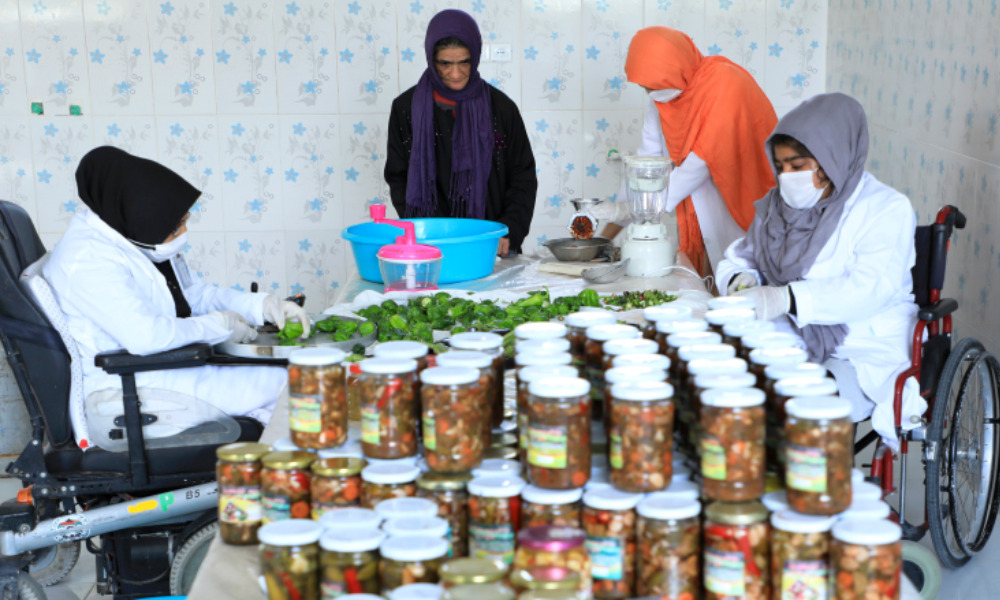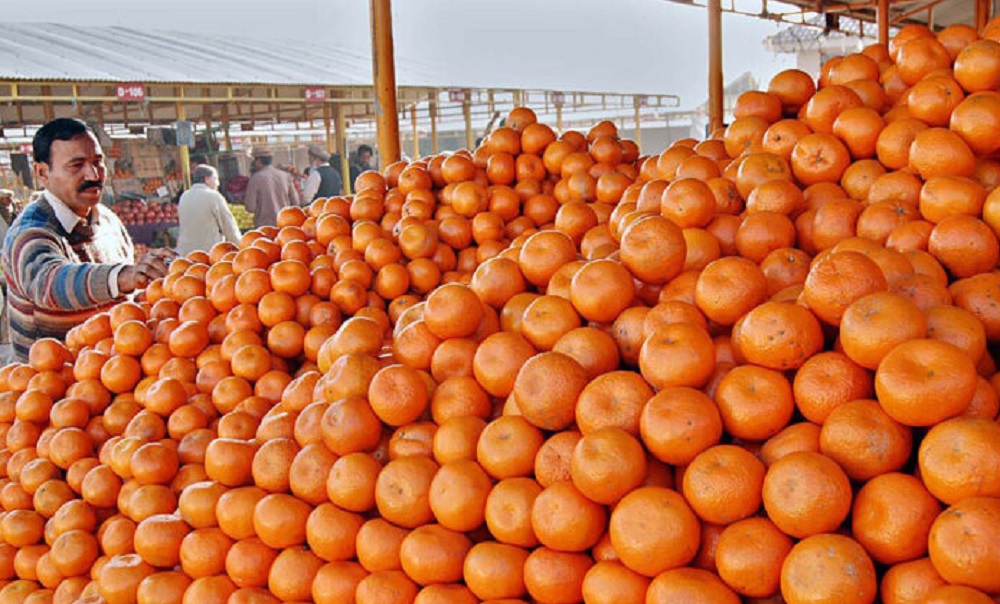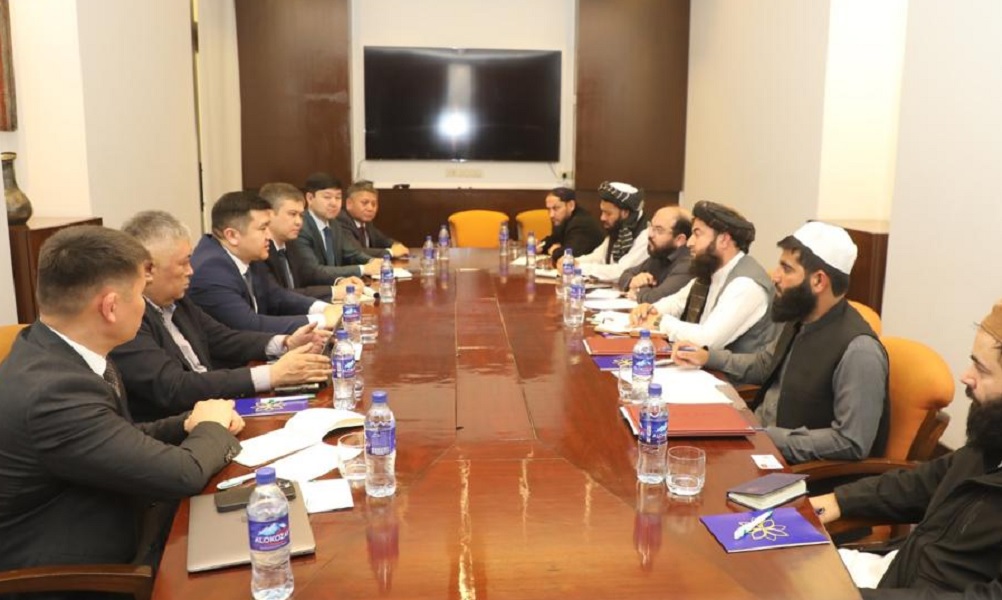Business
COVID-19 wreaks havoc on livelihoods of Afghans: World Bank report

COVID-19 will have a profound effect on Afghanistan’s economy which is likely to contract by between 5.5 percent and 7.4 percent this year, said the World Bank in its latest biannual Afghanistan Development Update.
According to the World Bank, this will exacerbate poverty and lead to a sharp decline in government revenue.
“The COVID-19 crisis is having a devastating impact on the livelihoods of Afghans while undermining the government’s revenue collection and its capacity to finance comprehensive programs to save lives, protect the poor, and jumpstart the economy,” said Henry Kerali, World Bank Country Director for Afghanistan.
The report titled Surviving the Storm was released on Wednesday and examines the coronavirus impacts on Afghanistan’s economic development.
As stated in the report, COVID-19 has hit Afghanistan in the midst of a difficult political transition, an intensifying conflict, and significant uncertainty regarding future grant support.
خبر: بر اساس یافته های تازه ترین گزارش اقتصادی بانک جهانی، میزان رشد اقتصادی افغانستان درسال ۲۰۲۰ میلادی به دلیل تاثیرات منفی شیوع ویروس کووید-۱۹ بین ۵.۵ الی ۷.۴ درصد کاهش خواهد یافت. جزییات بیشتر را اینجا بخوانید:https://t.co/nKpdadp6IP pic.twitter.com/K5ILIr03hF
— World Bank South Asia (@WorldBankSAsia) July 15, 2020
“While a peace agreement has been signed between the US and the Taliban, laying the foundations for negotiation of a comprehensive political settlement, Taliban attacks on Afghan security forces have intensified,” the report states.
It also points out the future of international assistance remains in question, while the US has substantially reduced troop numbers this year, with further reductions likely.
Current grant pledges expire at the end of 2020, and international partners are due to consider future aid commitments at an international conference in November.
“Without progress towards a sustainable peace and commitments to continued grant support from international partners, medium-term prospects appear increasingly grim,” read the report.
The report warns that the proportion of Afghans living in poverty may increase from 55 percent in 2017 to between 61 percent and 72 percent in 2020 because of declining incomes and the rising cost of food. The report finds that economic activity plummeted in the first half of 2020 as lockdowns and social distancing measures to curb COVID-19 negatively impacted the industry and service sectors.
To address the impacts of the crisis, the report recommends that tightly constrained public expenditures be carefully prioritized to protect the most vulnerable and limit long-term economic damage.
The report highlights the need for continued financial support from development partners.
“Short-term measures are needed to support households through the current crisis, while improvements in the business regulatory environment and maintaining the core functions of government will pave the way for longer-term recovery,” said Kerali.
“Ongoing support from development partners will help finance critical government operations and restore private sector confidence. The World Bank is working closely with the Government of Afghanistan both to implement the short-term response and lay the foundations for longer-term recovery,” Kerali added.
For full report CLICK HERE
Business
Pakistan’s kinno exports falter as tensions with Afghanistan continue

Pakistan’s kinno exports remain far below potential as regional tensions, high freight costs and weak government support continue to choke the citrus trade.
Despite being a leading global citrus producer, Pakistan is expected to export just 400,000–450,000 tonnes of kinno in the 2025–26 season, compared with an estimated capacity of 700,000–800,000 tonnes.
Exports in 2024–25 stood at around 350,000–400,000 tonnes, mainly to Russia, the UAE, Saudi Arabia, Afghanistan, Indonesia and Central Asia. While better fruit quality this season has raised hopes, persistent crossing disruptions—especially with Afghanistan—and transport bottlenecks have offset gains.
Growers say prices have collapsed sharply, forcing panic sales. Rates for large kinno have fallen from over Rs120 per kg early in the season to as low as Rs75, while smaller fruit is selling for Rs35–40 per kg amid weak demand.
Industry leaders warn the crisis is crippling processing units and jobs. More than 100 factories reportedly failed to open this season, with dozens more shutting down as exports stall. Cold storages in Sargodha are nearly full, putting fruit worth millions of dollars at risk of spoilage, while growers fear losses of up to Rs10 billion.
Exporters are urging the government to urgently resolve issues, subsidise logistics, and help access alternative markets, warning that prolonged inaction could devastate farmers, workers and the wider economy.
Business
Pezeshkian pledges to facilitate Iran-Afghanistan trade

Iranian President Masoud Pezeshkian has said that Tehran will facilitate trade and economic exchanges with Afghanistan, including easing procedures at customs and local marketplaces.
He made the remarks during a televised interview following his visit to South Khorasan province, which shares a border with Afghanistan.
Pezeshkian, in a separate event addressing local business leaders, highlighted the province’s strategic advantages, citing its rich mineral resources, proximity to neighboring countries such as Afghanistan and Pakistan, and access to the ocean via the Chabahar port. He described the region as “a golden opportunity not found everywhere,” emphasizing its potential for economic growth and cross-border commerce.
Business
Afghanistan-Kazakhstan banking ties discussed in Kabul meeting
-

 Latest News3 days ago
Latest News3 days agoAfghan border forces prevent illegal entry of hundreds into Iran
-

 Latest News3 days ago
Latest News3 days agoPakistan summons Afghan diplomat over deadly attack in North Waziristan
-

 Latest News1 day ago
Latest News1 day agoAfghanistan signs 30-year deal for marble mining in Daikundi
-

 Latest News2 days ago
Latest News2 days agoAfghan health minister calls for medical cooperation between Kabul and New Delhi
-

 Latest News3 days ago
Latest News3 days agoJapan allocates nearly $20 million in humanitarian aid for Afghanistan
-

 Latest News3 days ago
Latest News3 days agoKarzai urges reopening of girls’ schools and universities for Afghanistan’s bright future
-

 Health5 days ago
Health5 days agoAfghanistan seeks India’s support in standardizing traditional medicine
-

 World5 days ago
World5 days agoUS readies new Russia sanctions if Putin rejects peace deal, Bloomberg News reports

























